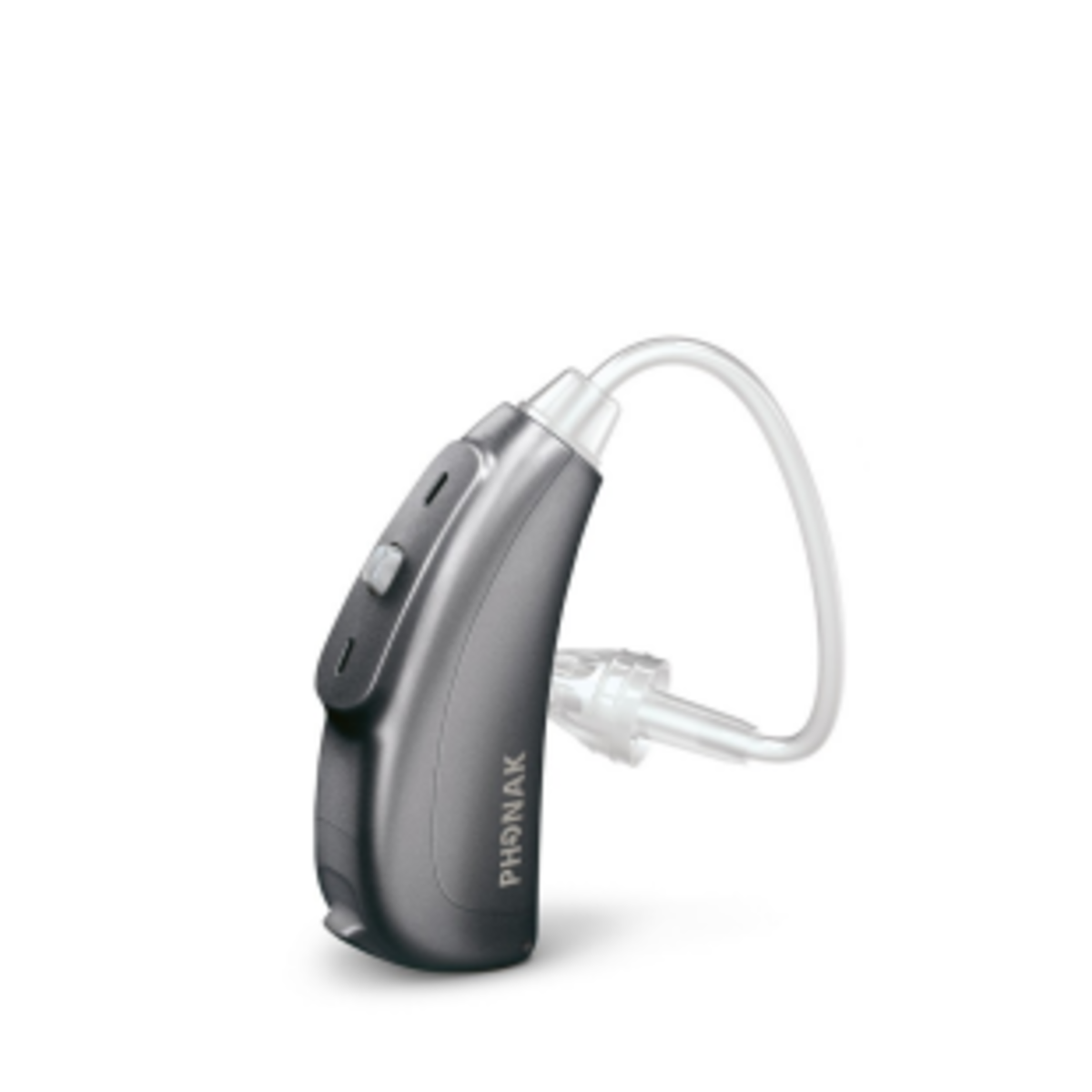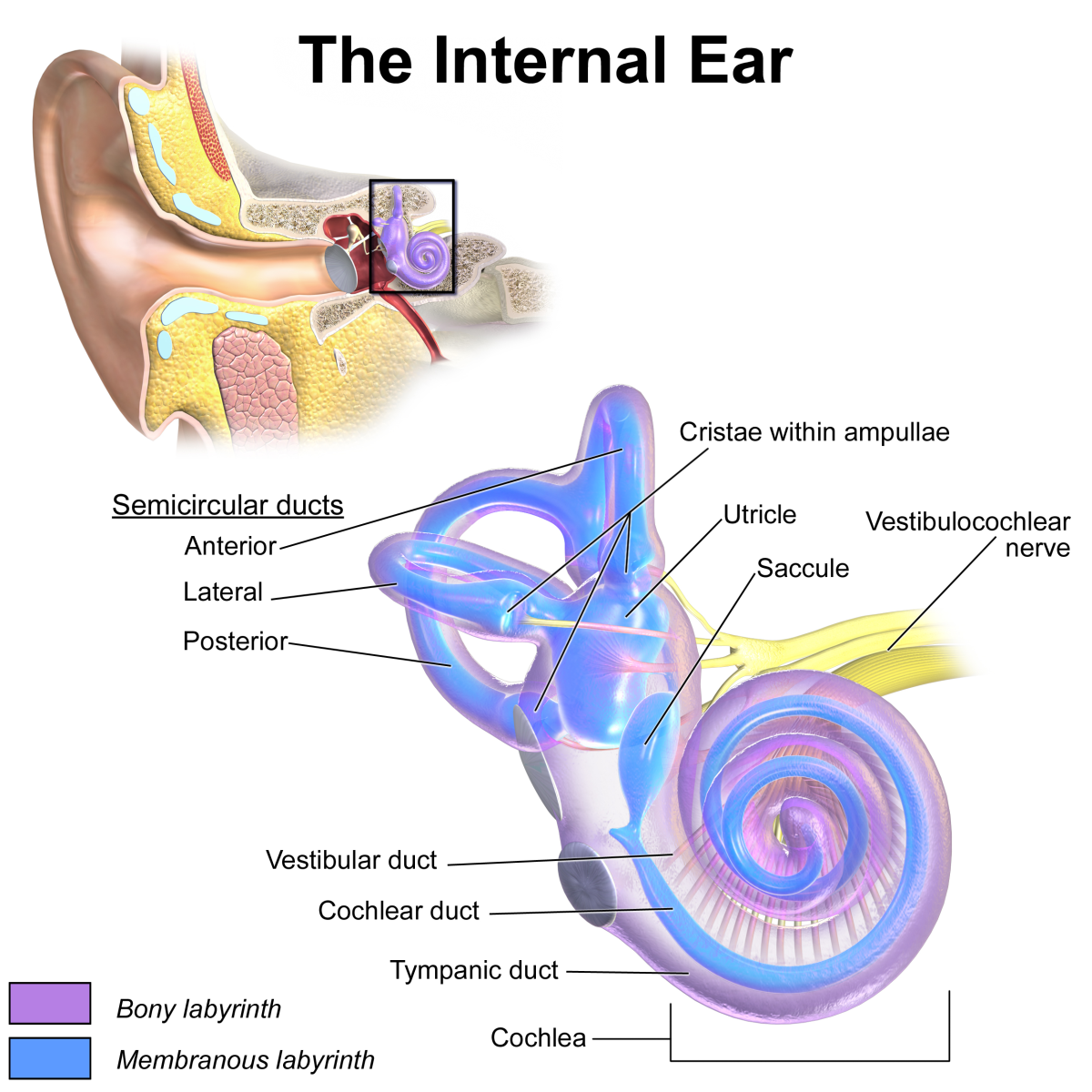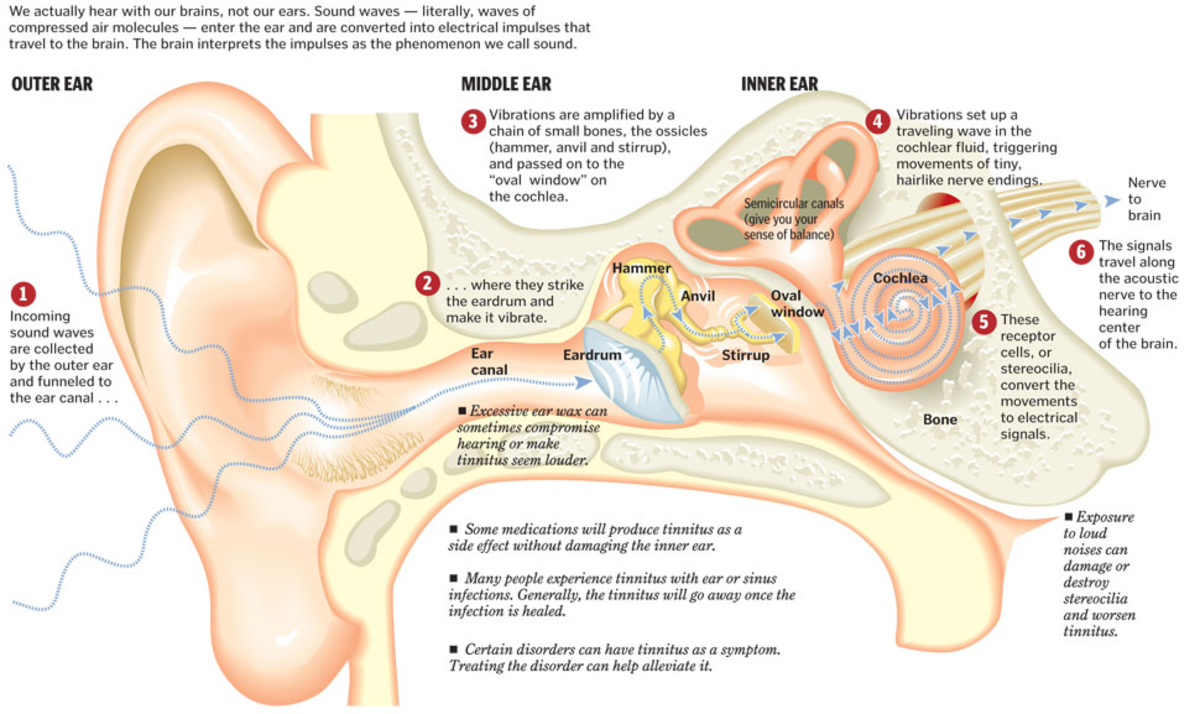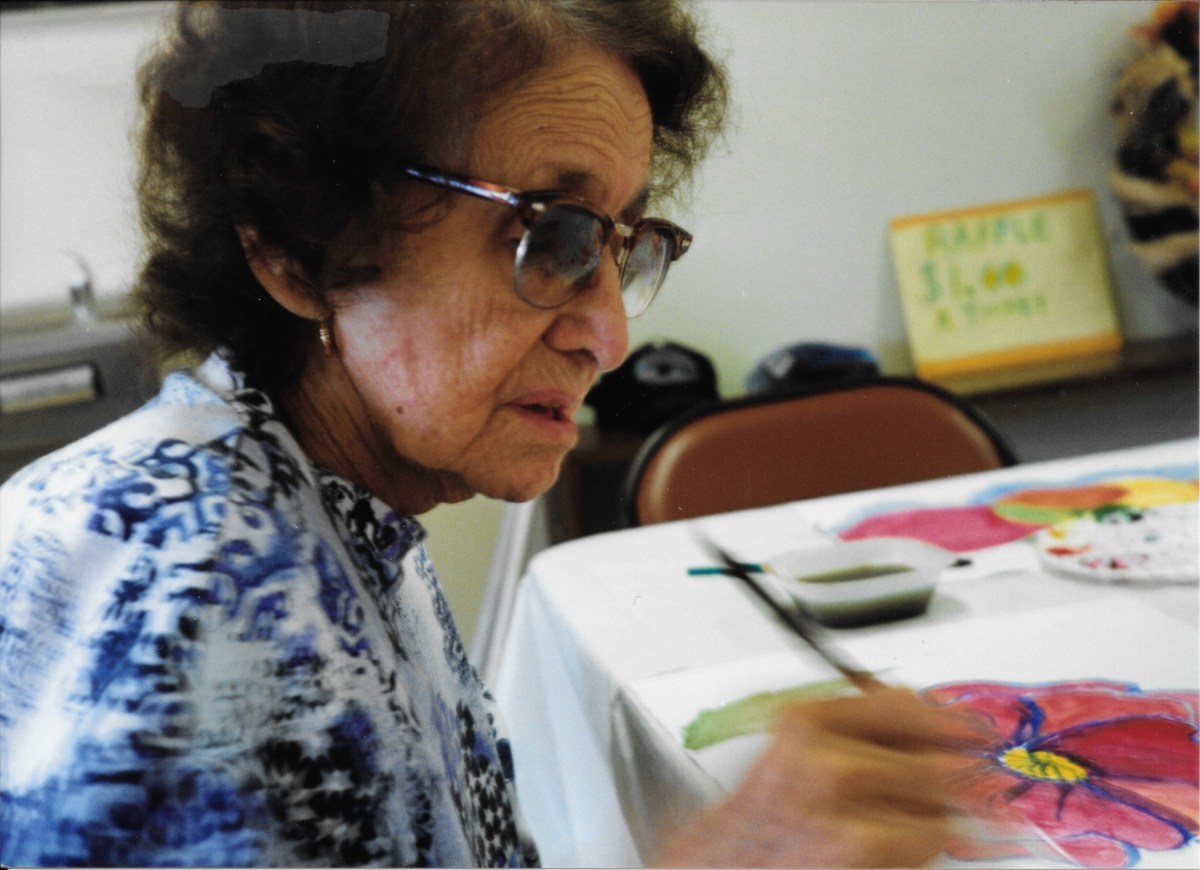Where to get Free Hearing Aids
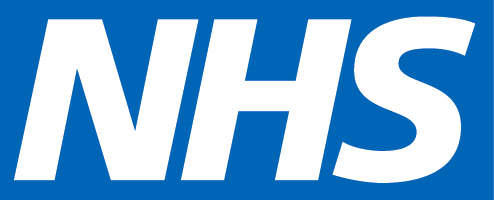
UK OR EEA RESIDENT
If you are a UK citizen or EEA national entitled to Heath treatment on the National Health Service then you are probably entitled to a FREE! Hearing aid, however you just can’t walk up to the hearing centre and demand one
VISIT YOUR DOCTOR
The first step is to visit your G.P. (General Practitioner) and explain that you don’t seem to be hearing as well as you could previously. The doctor will look into your ear with a magnifier which has a light attached, to see if there is any blockage, such as excess ear wax. If the doctor suspects that this is the case they may prescribe ear drops to gently move the wax and then a syringe of the ears with water (it does not hurt!) just to clean the ear of the wax. After a few hours your hearing should settle down and be as sharp as normal.
What happens when your ear does not have excess wax? The G.P. (General Practitioner) will book you an appointment with your local hospital to see a Ears, Nose and Throat Consultant (ENT). This appointment may take a little time but there are certain things you can control here. If you have any private medical insurance it might be an idea to book a private consultation or if you are really desperate pay for the first consultation and if further work is needed go on the NHS list for that. Sometimes, especially if you are older, (60+) your GP will have an audiology clinic where a visiting audiologist comes to the surgery to test your hearing- this is because hearing declines as you get older and it is unlikely that you have a hearing condition that can be alleviated by surgery.
As NHS users we have rights, there is an NHS Constitution that gives us rights of access to health care within given timescales. For instance, if you need treatment for a non-emergency condition then you have to be seen by a consultant within 18 weeks of application; unless the doctor thinks that your condition might warrant emergency action. You can also choose the hospital you want to go to, so if a consultant at another hospital has a shorter list, and you can travel, then it might be an idea to go there. Once you have seen a consultant they will decide on the next step forward; for some it is surgery but for the vast majority the only option is hearing aids.
Specsavers Hearing Service
I have just read on the Spec Savers website that it is now possible to be fitted for a hearing aid in their shops rather than wait for the NHS appointment. It is only available in some areas and you need to type in your postal code on their web site to see if it is available- this should shorten the wait for your NHS hearing aid.
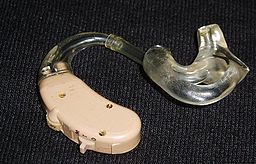
BEHIND THE EAR AIDS
The NHS provides a number of hearing aids Free of charge. The most frequently prescribed is the “Behind the Ear “Aid. This aid sits on the back of your ear and a tube is attached to a mould which fits into your ear. I have to be honest and say that I do not like them, finding them bulky and cumbersome and somewhat uncomfortable. It may be that mine was badly fitted or that as a young woman (I was 26 and newly engaged to be married ) I was embarrassed to wear such unsightly aids.
BODY WORN AIDS
“Body Worn Aids” – These are boxes that you wear in the pocket of your shirt or blouse and it is connected to the mould which is placed in your ear. The benefits of these are that there’s more room for the electronics so that they are usually suitable for very severe hearing loss. They are also useful for the very elderly who have difficulties coping with small, fiddly aids; however there are very few types of these hearing aids available as they are not popular because of their size
Did you know that you could get your hearing aids free from the NHS?
BONE CONDUCTING AIDS
“Bone conducting Hearing Aids” – These work by the user wearing a band on their head which is placed onto the skull. The vibrations of sound are transmitted via the headband to the bones in the ear. It would only be suitable for specific types of hearing loss. These aids are prescribed to people who cannot wear a normal hearing aid, perhaps because of severe eczema or partial loss of the ear. These aids can be uncomfortable but are extremely suitable for some hearing loss. Some patients have the aid fitted to a pair of glasses, so not only do you have to wear a hearing aid you need strong framed glasses too! This was suggested as an option to me by a dispenser when I first lost my hearing- I was so upset- having to wear glasses as well. Now I am older and wear reading glasses I guess some people would not find it too bad- but I understand that the efficiency of the aid is not as good.
BONE ANCHORED AIDS
“Bone Anchored Hearing Aids”- As above but these are permanently anchored to your skull. The titanium aid with its directional microphone is attached to the bone behind your ear. I assume you must have to cover them up for swimming or bathing, but I have not been able to find the answer to what I think is quite a sensible question.
CONTRA LATERAL AND BILATERAL AIDS
“Contra lateral and Bilateral Hearing Aids”- - these are designed for people who have hearing in one ear only. The aid catches the sound in the area of the missing hearing and then transfers it to the ear that can hear- I think that is pretty astounding and I wish I knew about them before my mum bought a new aid as she is totally deaf in one ear.
Have you ever had free Hearing Aids from the NHS?
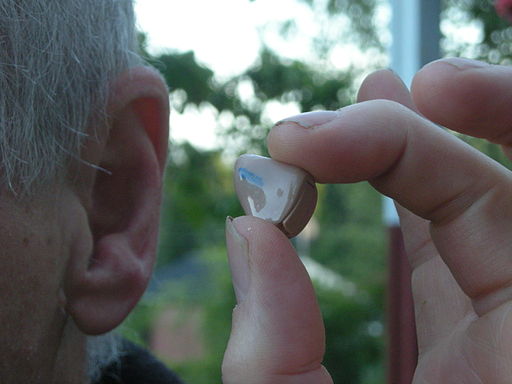
SERVICE AND REPAIR
It is worth stressing that with the NHS you do get the normal service such as ear moulds made to the shape of your ear and a follow up appointment to see how you are getting on with them; repair, spare batteries and servicing are also free. Apparently there are also a range of aids that do not have to be fitted but can be supplied on the day of the appointment. I do not have any experience of these but I assume they are for people who have a very slight hearing loss. The NHS do not supply in the ear hearing aids, or in the canal or invisible hearing aids, which is why there is such a booming Industry for private hearing aids. However as a privately bought hearing aid can cost anything from £450 to £2000 it might just be that in these austere times, it is worth turning to the NHS to provide your hearing aids.
Batteries- all the aids need them!


